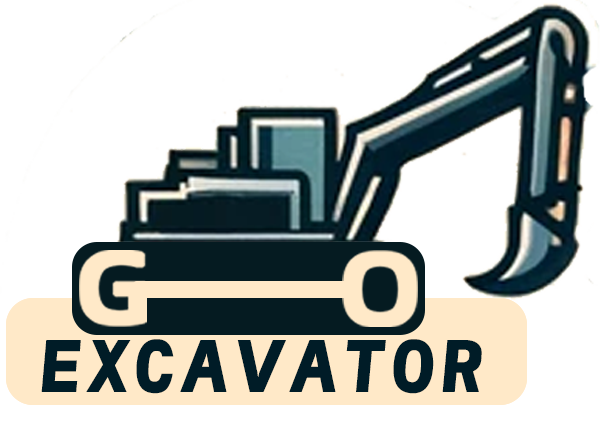
Excavators are essential machines in the construction and earthmoving industries. They come in various sizes and types, each designed for specific tasks and environments. Among the most common types are mini excavators and hydraulic excavators. While they may seem similar at first glance, there are significant differences between them that can impact their suitability for different projects.
What is a Mini Excavator?
Definition and Features
Mini excavator is a compact, lightweight version of the standard excavator. Typically weighing between 0.7 to 8.5 tons, mini excavators are designed for projects where space is limited. They are equipped with a standard backfill blade and feature independent boom swing.
Key Features:
- Compact Size: Ideal for tight spaces and urban areas.
- Lightweight: Causes minimal ground damage.
- Versatility: Can be equipped with various attachments like augers, breakers, and grapples.
- Ease of Transport: Can be transported using a standard pickup truck and trailer.
Common Uses
Mini excavators are commonly used for:
- Residential construction projects
- Landscaping and grading
- Utility work (e.g., laying pipes or cables)
- Small-scale demolition
- Roadside applications
What is a Hydraulic Excavator?
Definition and Features
A hydraulic excavator is a larger, more powerful machine that uses hydraulic fluid to perform heavy-duty tasks. Weighing anywhere from 6 to over 90 tons, these excavators are built for substantial digging and lifting operations.
Key Features:
- Hydraulic System: Provides immense power for heavy lifting and digging.
- Large Size: Suitable for extensive construction sites.
- Multiple Attachments: Can handle a variety of tasks with different attachments.
- Enhanced Stability: Designed to handle heavy loads safely.
Common Uses
Hydraulic excavators are commonly used for:
- Large-scale construction projects
- Mining operations
- Road and bridge construction
- Mass excavation
- Demolition of large structures

Key Differences Between Mini and Hydraulic Excavators
Size and Weight
- Mini Excavators: Weigh between 0.7 to 8.5 tons. Their compact size makes them ideal for projects with space constraints.
- Hydraulic Excavators: Weigh from 6 to over 90 tons. Their larger size is suitable for expansive job sites.
Versatility
- Mini Excavators: Highly versatile due to their ability to navigate tight spaces and be fitted with various attachments.
- Hydraulic Excavators: While versatile, their large size limits their use in confined spaces.
Operational Costs
- Mini Excavators: Lower fuel consumption and maintenance costs due to their smaller size.
- Hydraulic Excavators: Higher operational costs but offer greater productivity for large projects.
Maneuverability
- Mini Excavators: Excellent maneuverability, can operate in urban areas without causing significant disruptions.
- Hydraulic Excavators: Require more space to operate and transport, making them less maneuverable in tight areas.
Applications
- Mini Excavators: Best suited for small to medium projects like residential construction, landscaping, and utility work.
- Hydraulic Excavators: Ideal for large-scale projects such as mining, extensive construction, and major demolition.
Which One Should You Choose?
Factors to Consider
- Project Size and Scope: For small to medium projects, mini excavators are more practical. For large-scale operations, hydraulic excavators are more efficient.
- Site Accessibility: If the project site has limited space, a mini excavator is the better choice.
- Budget Constraints: Consider operational costs. Mini excavators are generally more cost-effective for smaller projects.
- Type of Work: Heavy-duty tasks like large-scale demolition or mining require the power of hydraulic excavators.
- Transportation: Mini excavators are easier and cheaper to transport.
Understanding the differences between mini excavators and hydraulic excavators is crucial for selecting the right equipment for your project. Mini excavators offer versatility and efficiency in confined spaces, while hydraulic excavators provide the power needed for large-scale operations.
A Comprehensive Guide to Buying a Excavator Second Hand
Purchasing a second-hand excavator can be a cost-effective solution for your construction or landscaping needs. However, buying used machinery comes with its own set of challenges and considerations. This comprehensive guide will walk you through [...]
Comprehensive Guide to Hyundai Mini Excavators: Features and Prices
Mini excavators have become indispensable tools in the construction and landscaping industries. Hyundai Construction Equipment, a global leader in heavy machinery, offers a range of mini excavators known for their reliability, efficiency, and advanced features. [...]
How to Extend the Service Life of Excavator Parts
Excavators are indispensable machines in the construction and mining industries. They perform heavy-duty tasks that demand robust components and meticulous maintenance. Extending the service life of excavator parts not only reduces operational costs but enhances [...]
Kymron Excavators: Innovative, Sustainable Construction Machinery
In the dynamic world of construction and heavy machinery, Kymron has emerged as a game-changer. Specializing in advanced excavator technology, Kymron is redefining industry standards with its commitment to innovation, efficiency, and sustainability. Company Overview [...]
Bulldozer vs. Wheeled Excavator: Which Machine is Better for Moving Soil?
Moving soil is a fundamental task in construction, landscaping, and earthmoving projects. Choosing the right machinery for the job can significantly impact efficiency, cost, and project timelines. Two of the most commonly used machines for [...]
Why Are Small Excavators Favored? A Comprehensive Guide
In the world of construction and landscaping, efficiency and versatility are key. Among the myriad of machinery available, small excavators have risen in popularity. But what makes them so favored? Introduction to Small Excavators Small [...]




